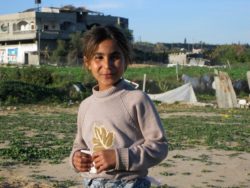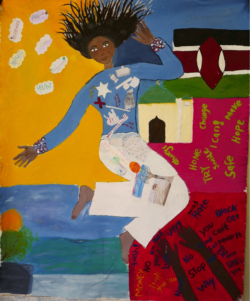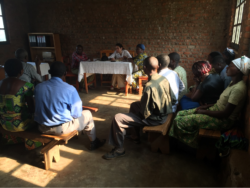Gender and Security
Gender equality is a key priority of the Sustainable Development 2030 agenda. In Goal 5 of this agenda, the empowerment of women and girls, ending discrimination, and the eradication of violence against women are prerequisites for eradicating poverty and achieving the sustainable development goals. The protection and fulfilment of the rights of women and girls is also a UK key aid priority endorsed by the British government in the 2015 Aid Strategy.
Cognisant of the importance of gender for addressing global security challenges, CGSC is positioning itself to become a global hub for research on gender and international security. As part of this plan, we have recently hired Dr Sahla Aroussi (formerly CTPSR) and Dr Louise Pears (Leeds recent graduate). These two new appointments consolidate our existing research expertise in this area, including Drs Stefan and Considine, as well as Professor Holland. Dr Aroussi leads this research theme.
We have a long list of partners and collaborators in the UK and internationally including The London School of Economics, Brunel University, the Technical University of Mombasa, The Rift Valley Institute, The International University of Africa. And our research complements the work in the Centres for Democratic Engagement, Global Development, and ECR2P.
Gender and armed conflict
Research under this theme covers topics such as the responsibility to protect, ‘women, peace and security’ (WPS), sexual violence in armed conflicts and transitional justice.

Highlight: Dr Cristina Stefan’s research explores the gender mechanisms of the Responsibility to Protect Agenda. As part of a British Academy funded project, Dr Stefan created a Women's Network on the Responsibility to Protect Peace and Security. This network organised an international conference that highlighted the excellent work and impact of established academics and researchers, experienced diplomats, United Nations and European Union officials, seasoned policy-makers and practitioners, civil society and charity directors in the international peace, security and the Responsibility to Protect (R2P) fields. Dr Stefan's work has been featured in the Vice-Chancellor's 'world-changers' series.
Highlight: In the area of women, peace and security Dr Sahla Aroussi’s research on the implementation of the UN resolutions on WPS in peace agreements was the subject of her monograph 'Women, Peace, and Security: Repositioning gender in peace agreements' (Intersentia 2015/ Cambridge University Press, 2017). Dr Aroussi also conducted research on National Action Plans on women peace and security including her project in collaboration with Melanie Hoewer (University College Dublin), which was funded by a NATO, Science for Peace and Security Advanced workshop research Award. This workshop resulted in a special issue published by NATO Science for Peace and Security Series in 2017. Dr Aroussi is also currently conducting a research consultancy for the UN Women Regional Office for Arab States (ROAS) on transitional justice in National Action Plans on WPS in Arab States. The aim of this work is to deliver policy recommendations on how best to address transitional justice issues within the framework on women, peace and security in the region.
Highlight:We are concerned about gender justice and ending gender-based violence. Our research on sexual violence and armed conflicts includes a British Academy-funded study, in collaboration with the Justice and Peace Commission of Bukavu, that explored perceptions and experiences of justice among survivors of sexual violence in South Kivu. This research was highly impactful providing evidence on how to respond to survivors of sexual violence needs for justice and reparation in context of ongoing insecurity and conflict. The research emphasised the importance of reparation in the pursuit of justice in the context of South Kivu. Evidence from this research was referenced in the expert report on reparation in the case Prosecutor Bosco Ntaganda of the International Criminal Court. Key outputs from this research included articles in the International Journal of Transitional Justice, Qualitative Research and Politics & Gender.
Highlight: We are passionate about methodological innovation in the study of gender and armed conflict. Our work in this area includes research on arts-based methods as tool for peacebuilding and social change. As part of this area of work, we are engaged in a project funded by UKRI and the Global Challenges Research Fund on Performing Violence: Engendering Change. This project is led by Daniele Rugo from Brunel University and conducted in collaboration with Kirsten Ainley from the London School of Economics, alongside 15 other partners from Kenya, South Africa, The Democratic Republic of the Congo, Iraq, Lebanon, Pakistan and Sri Lanka. This research aims to connect artists and researchers from countries across Africa, the Middle East and South Asia working with peacebuilding practices rooted in the arts.
Gender and violent extremism
 Highlight: Violent extremism represents a real challenge to sustainable development, peace and security. Encouraged by the increasing interest in policy and academia in the role of gender in violent extremism, our experts have been striving to be at the forefront of research in this area. Current research projects on this topic at CGSC include a British Academy Tackling UK International Challenges Award on Gender and Resistance to Violent Extremism in Kenya. This project is conducted by Dr Aroussi in collaboration with Dr Fathima Azmiya Badurdeen from the Technical University of Mombasa and in partnership with Art2be, Nairobi. The project uses gender and intersectionality lenses and body mapping as a co-creative and arts-based method to explore how violent extremism is understood, experienced and resisted at a local community level. One of the outputs from this research was to co-create a book of stories with visual narratives using body mapping that illustrates the different experiences of violent extremism and resistance to it. To learn more about this project check Gender and Resistance to Violent Extremism .
Highlight: Violent extremism represents a real challenge to sustainable development, peace and security. Encouraged by the increasing interest in policy and academia in the role of gender in violent extremism, our experts have been striving to be at the forefront of research in this area. Current research projects on this topic at CGSC include a British Academy Tackling UK International Challenges Award on Gender and Resistance to Violent Extremism in Kenya. This project is conducted by Dr Aroussi in collaboration with Dr Fathima Azmiya Badurdeen from the Technical University of Mombasa and in partnership with Art2be, Nairobi. The project uses gender and intersectionality lenses and body mapping as a co-creative and arts-based method to explore how violent extremism is understood, experienced and resisted at a local community level. One of the outputs from this research was to co-create a book of stories with visual narratives using body mapping that illustrates the different experiences of violent extremism and resistance to it. To learn more about this project check Gender and Resistance to Violent Extremism .
Highlight: Other significant projects in the area of gender and violent extremism include the Global Network on Gender and Responding to Violent Extremism (GARVE). This project which is funded by a UKRI and Global Challenges Research Fund Award is led by Dr Fatuma Ahmed from the United States International University of Africa (Nairobi), co-directed by Dr Sahla Aroussi and managed by the Rift Valley Institute (Nairobi). The aim of this project is to create a global network of academics and practitioners from across the world to discuss, exchange knowledge and expertise, highlight best practices and promote critical thinking on violent extremism from a gender perspective.
Gender, power and representation
 Sustainable development cannot be achieved if women continue to be denied their full human rights. Achieving gender equality will significantly contribute to progress across all the goals and targets of the Sustainable Development Agenda. Under Goal 5 of the 2030 agenda States must ensure “women’s full and effective participation and equal opportunities for leadership at all levels of decision-making in political, economic and public life”. In line with this aim, our researcher at the CGSC for Global Security Challenges have been studying gender, women’s leadership, and participation in decision making from a multi-disciplinary perspective.
Sustainable development cannot be achieved if women continue to be denied their full human rights. Achieving gender equality will significantly contribute to progress across all the goals and targets of the Sustainable Development Agenda. Under Goal 5 of the 2030 agenda States must ensure “women’s full and effective participation and equal opportunities for leadership at all levels of decision-making in political, economic and public life”. In line with this aim, our researcher at the CGSC for Global Security Challenges have been studying gender, women’s leadership, and participation in decision making from a multi-disciplinary perspective.
Highlight: Research by Professor Jack Holland and Dr Katy Parry has focused on the constructions and tensions of gender and leadership, including the challenge of the double bind facing women leaders, and the role of the media in reproducing gendered readings of female leadership. Their research has considered the United Kingdom and Australian parliaments.
Highlight: To study obstacles and barriers for women’s access to the judiciaries of Arab States, Dr Aroussi led a research study for the United Nations Economic and Social Commission for Westerns Asia (UN ESCWA) on Women in the judiciary of Arab States: Removing Barriers, Increasing Numbers. The report from this study offers a regional outlook on women’s presence in the judiciary within Arab states and the barriers for their inclusion. The study also formulates evidence-based policy recommendations on how to increase women’s presence in the judiciary, with an emphasis on replicating successful practices from around the region.
Highlight: Our researchers are also interested in gender and security representation in popular culture. In particular Dr Louise Pears has conducted extensive research into the reception, resonance and resistance of popular culture portrayals of gender and security. Similarly to Prof Holland's work on gender and television, this research focuses on the construction of militarised masculinities. See also postdoc Dr Ben Fermor's writing on Trump's construction of masculinity.
